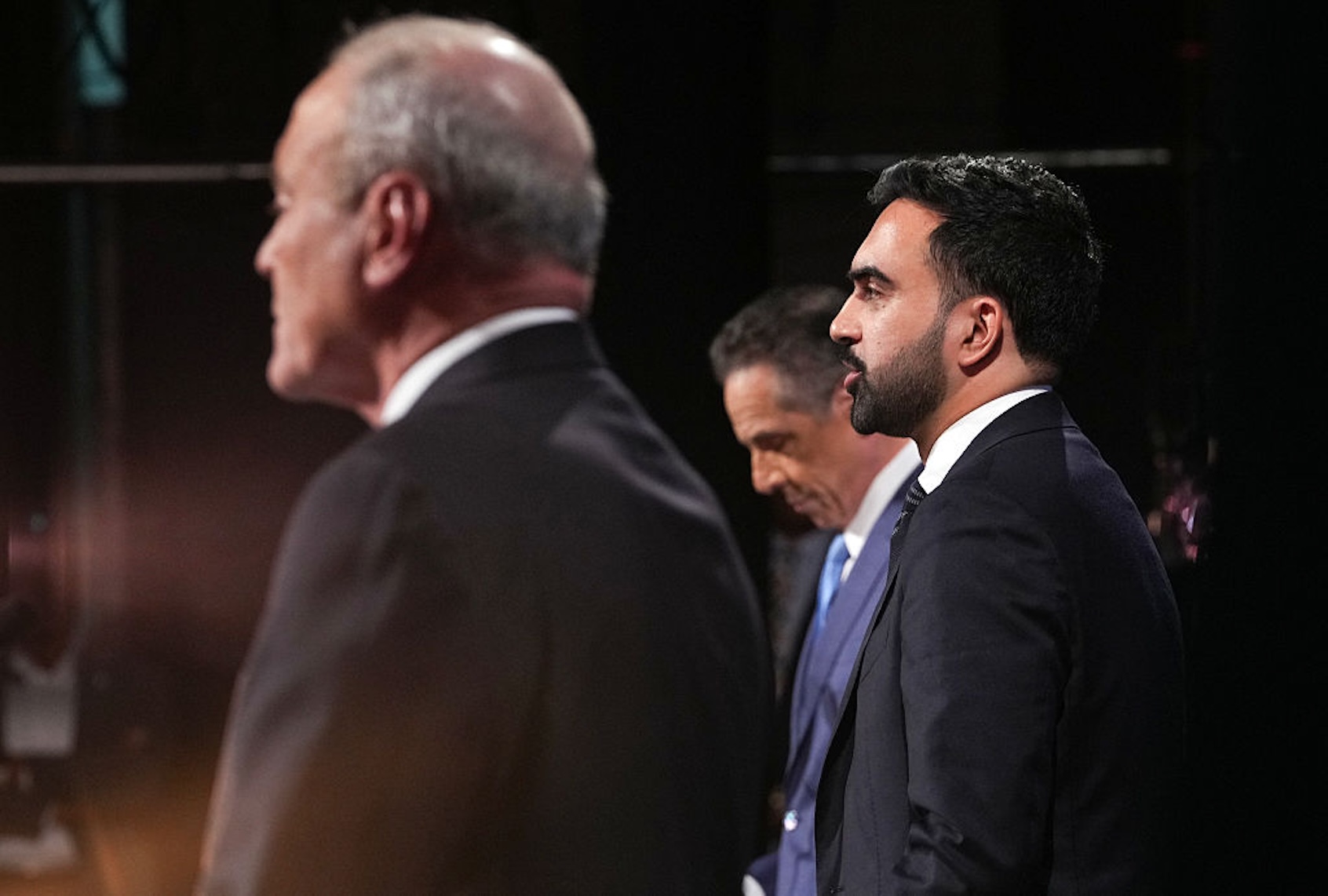World
New York’s Mayoral Election Highlights the Need for Ranked Choice Voting

New York City’s mayoral election is concluding amidst significant negativity, raising questions about the fairness and effectiveness of the electoral process. Former Governor Andrew Cuomo made headlines for his controversial remarks during a radio interview, where he suggested that Democratic nominee Zohran Mamdani would be ill-prepared to handle a crisis akin to the September 11 attacks. Cuomo’s comments have ignited further tension in an election already marked by hostility and aggressive campaigning.
As the election day approaches, the dynamics of the race have shifted dramatically from the Democratic primary, which utilized ranked choice voting (RCV). This system fostered a more civil atmosphere, encouraging candidates to collaborate and support one another. In contrast, the current general election presents a starkly different picture, characterized by a winner-takes-all mentality that often leads to divisive tactics.
The Democratic primary showcased a sense of unity, with Mamdani and fellow candidate Brad Lander appearing together on popular platforms, including “The Late Show with Stephen Colbert.” Their joint appearances and mutual fundraising efforts highlighted the positive potential of collaborative campaigning. Ranked choice voting empowered voters to express their preferences more freely, allowing candidates to appeal to a broader audience without the fear of splitting votes.
In stark contrast, the general election has devolved into a battleground of aggressive rhetoric. Reports indicate that Cuomo has suggested that a vote for Republican nominee Curtis Sliwa essentially supports Mamdani, emphasizing a strategy of undermining opponents rather than promoting a positive vision. This shift has encouraged candidates to focus on mudslinging, leading to discussions about personal matters that detract from substantive policy debates.
The absence of ranked choice voting in the general election has intensified concerns about spoilers and the potential for voter disenfranchisement. Many observers argue that the current electoral framework limits genuine choice, reducing the ability of voters to select candidates they truly support. The tension surrounding potential spoilers has overshadowed critical discussions about pressing issues, such as housing affordability and public safety.
The implementation of RCV could mitigate many of these challenges, allowing for a more comprehensive discussion of candidate platforms. In February, Mamdani was polling at just 1%, but as voters became more engaged, his candidacy gained momentum, illustrating the importance of an electoral system that encourages multiple voices. Under RCV, candidates are compelled to build coalitions and engage positively with one another, rather than relying on negative campaigning to eliminate rivals.
As the election nears its conclusion, the discourse has shifted dramatically from substantive policy debates to personal attacks and allegations. For example, speculation about Mamdani’s family members’ experiences post-September 11 has dominated recent news cycles, further exacerbating the prevailing negativity.
The opportunity for a more constructive electoral process is clear. With RCV, candidates would be encouraged to articulate their platforms positively, potentially transforming the political landscape. Observers have noted that candidates could cross-endorse one another, fostering a spirit of cooperation rather than competition.
In a recent debate, Mamdani expressed his hypothetical ranking in an RCV scenario, suggesting he would place himself first and Sliwa second. This light-hearted moment reflected the camaraderie that is often absent in traditional campaigning.
The contrast between the primary and general elections in New York City underscores the potential benefits of ranked choice voting. RCV fosters an environment where candidates can focus on issues rather than personal attacks, ultimately benefiting voters and enhancing democratic engagement. As the city prepares to elect its next mayor, the lessons from this election cycle emphasize the urgent need for reform in the voting process to promote a healthier political climate in the future.
-

 Science2 weeks ago
Science2 weeks agoInventor Achieves Breakthrough with 2 Billion FPS Laser Video
-

 Top Stories3 weeks ago
Top Stories3 weeks agoCharlie Sheen’s New Romance: ‘Glowing’ with Younger Partner
-

 Business3 weeks ago
Business3 weeks agoTyler Technologies Set to Reveal Q3 Earnings on October 22
-

 Entertainment3 weeks ago
Entertainment3 weeks agoDua Lipa Aces GCSE Spanish, Sparks Super Bowl Buzz with Fans
-

 Health3 weeks ago
Health3 weeks agoCommunity Unites for 7th Annual Into the Light Walk for Mental Health
-

 World3 weeks ago
World3 weeks agoR&B Icon D’Angelo Dies at 51, Leaving Lasting Legacy
-

 Health3 weeks ago
Health3 weeks agoCurium Group, PeptiDream, and PDRadiopharma Launch Key Cancer Trial
-

 Entertainment3 weeks ago
Entertainment3 weeks agoRed Sox’s Bregman to Become Free Agent; Tigers Commit to Skubal
-

 Entertainment3 weeks ago
Entertainment3 weeks agoMother Fights to Reunite with Children After Kidnapping in New Drama
-

 Health3 weeks ago
Health3 weeks agoNorth Carolina’s Biotech Boom: Billions in New Investments
-

 Science3 weeks ago
Science3 weeks agoNorth Carolina’s Biotech Boom: Billions Invested in Manufacturing
-

 Top Stories3 weeks ago
Top Stories3 weeks agoDisney+ Launches Chilling Classic ‘Something Wicked’ Just in Time for October









